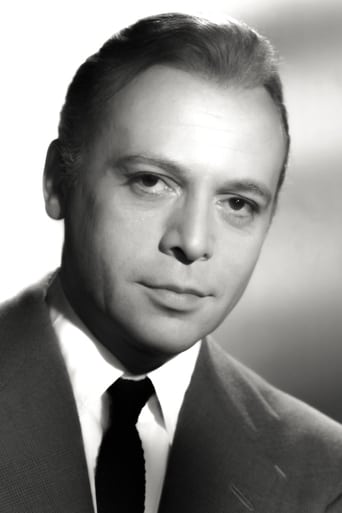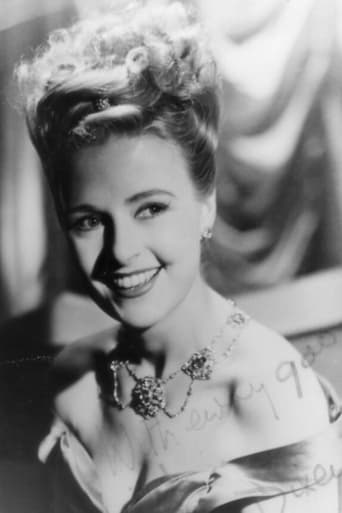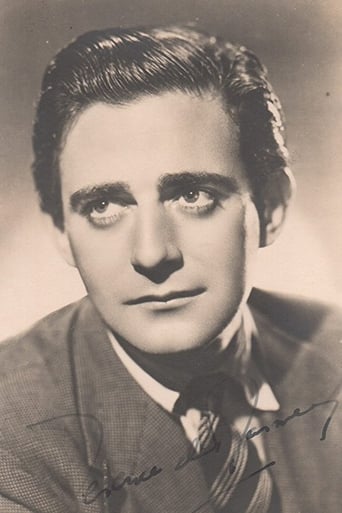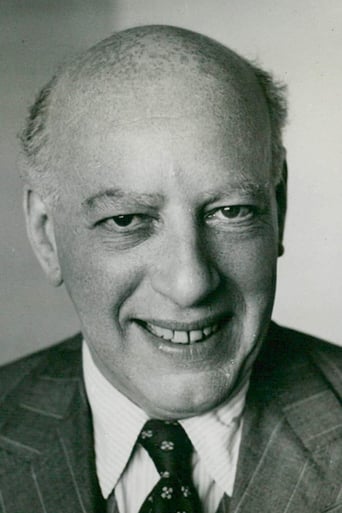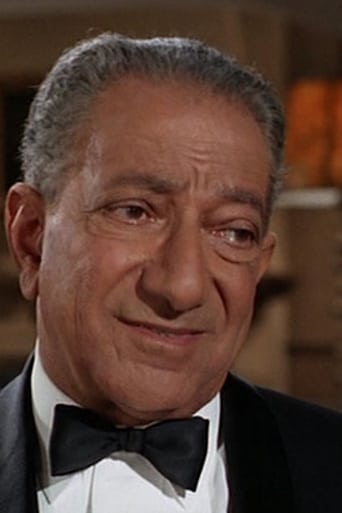Matialth
Good concept, poorly executed.
Baseshment
I like movies that are aware of what they are selling... without [any] greater aspirations than to make people laugh and that's it.
FirstWitch
A movie that not only functions as a solid scarefest but a razor-sharp satire.
Richard Chatten
A typically offbeat British National production produced by the ill-fated Louis H. Jackson (the company went bankrupt the following year) and directed by the mysterious Alfred Travers with a plot that feels like a silent continental melodrama. James Wilson's low keyed photography suits the drab, sordid nature of the story as well as enhancing the believable interaction throughout the film of twin brothers both played by Herbert Lom; achieved with the aid of nimble use of a stand-in, skillful editing and the occasional unostentatious use of trick photography.Lom's compelling portrayal of two identical but distinct twin brothers made him a star. Terence de Marney is such a skunk as he gets away with shameless daylight robbery (which the law predictably proves complacently powerless to redress) that I felt even the drastic reprisal taken against him let him off lightly. Holes can doubtless be picked in the plot, but it delivers powerful drama right up to the (very) bitter end.
Alex da Silva
Herbert Lom recounts his tale in flashback as to how he has ended up scraping a living by sandwich boarding. He was once part of a headlining trapeze act in a circus owned by Ronald Frankau (Barney) performing in sunny Blackpool. His partner was his twin and his tale is one of tragedy. What happened to the twin? This film ends on a downbeat note but it is still entertaining thanks to the cast of villains and the central aspect of distinguishing the twins from one another. It is crucial to the plot and keeps you watching. Lom is very good in this dual role and the twins use their similarity to their advantage in a novel twist to a murder charge. I think justice was done.Phyllis Dexter (Penny) as the bad girl doesn't do any stripping. She should have, though, given that was her real-life business!
seglora
This is a very fine and interesting film noir — among the better films of post-war British cinema. The story with twin trapeze artists might be a bit far-fetched in some aspects, but the opening of the film is brilliant, as is the ending. The photography is in beautiful dark tones and the music accompanying the trapeze acts is excellent. Herbert Lom is convincing in the role of both twins. I think the merit of his subtle performance lies above all in not exaggerating too much the difference in character between the two twins. Extreme characterization is normally a much easier option for an actor or actress when one thinks of other famous stars playing twins, such as Bettie Davis, who did this twice in "Stolen Life" and "Dead Ringer", or Olivia de Havilland in "The Dark Mirror". This is an excellent British film noir which deserves to be much better-known. Apart from this, I have not seen any more films by Alfred Travers, who seems to be a totally forgotten director. Astonishingly, hardly anything seems to be known about his life and career (apart from the titles of the films he directed), not even the date of his death. This must surely have happened, as the only scant detail available about this director is that he was born in 1906, in Constantinople.
wilvram
Like one or two others here, I recall seeing this on TV years ago. It certainly made an impression and watching it again recently reminded me why it did.The story never falters from the start and there's neither an extraneous scene nor wasted word of dialogue. The word 'noir' is often used inaccurately on IMDb and elsewhere these days to describe a run of the mill crime movie that happened to be shot in black and white, but this film is the real thing. Not a single scene takes place in daylight, and the often oppressive ambiance is caught in the opening shot as a bedraggled group of unemployed men are made up as clowns to go out in the pouring rain with sandwich boards to promote Vincent Barney's circus. The kindly Barney recognises one of the de Lisles, identical twins and trapeze artists who used to be his star attraction and who now recounts his fall from grace.Director Alfred Travers did not enjoy a high profile, making few films, mostly obscure second features, but he clearly knew what he was doing here. By comparison, for example, the renowned Terence Fisher's 'noirs' for Hammer in the early 1950s are heavy-handed and soporific. Apart from Travers' skill in keeping the story moving, the circus atmosphere is conjured brilliantly through the judicious choice of background music, particularly Stanley Black's haunting trapeze theme, since the budget apparently didn't stretch to featuring any actual circus acts apart from the twins' high-flying act and brief glimpses of a horse and an elephant. Not least he gets some excellent performances too. Herbert Lom is superb as the twins, bringing out their subtle differences, and with the aid of James Wilson's masterly trick photography, all the more remarkable on such a poverty row production, it's easy to suspend disbelief. The talented and popular comedian of radio and concert parties Ronald Frankau, making a rare screen appearance, brings charm, authority, and a sense of fun to his portrayal of the avuncular and sympathetic Barney. Terence de Marney is convincing as the repellent and ruthless Mike Bergin, whilst playing his accomplice, Penny, is 'Britain's First Lady of Striptease' Phyllis Dixey. She doesn't do a bad job; but this was only her second and last film appearance. Her striptease act must have been of a very genteel variety, in fact according to one aficionado 'her girls did the stripping while she gave the audience the occasional "flash"! She was portrayed by Lesley-Anne Down in an excellent TV biopic THE ONE AND ONLY PHYLLIS DIXIE, broadcast in November 1978.DUAL ALIBI concludes with a twist ending as unforced and logical as it is uncompromising, and should definitely be a candidate for DVD release by one of those companies specialising in forgotten classic British films!
